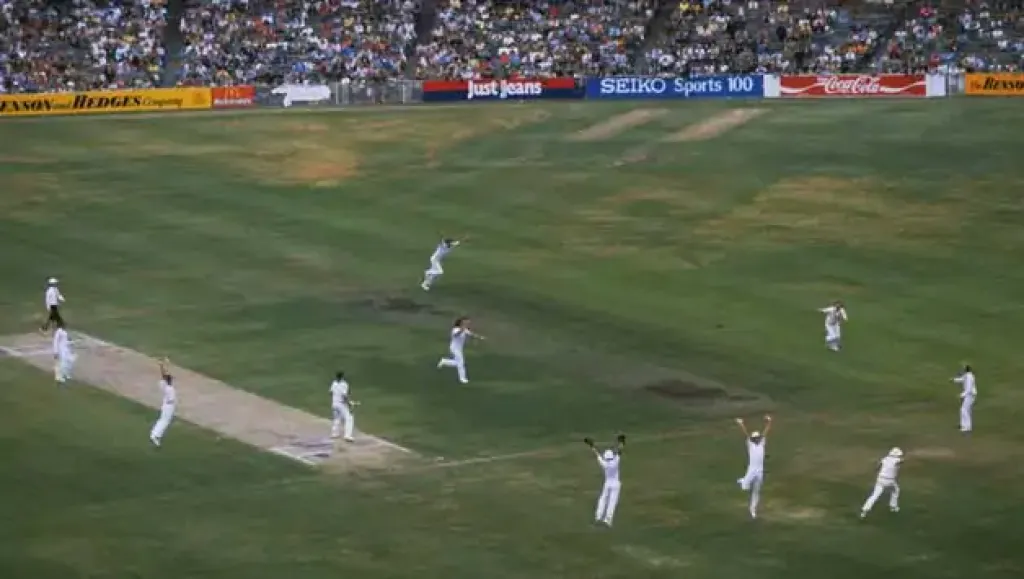The 1989 tour of England saw Australia not only regain the Ashes, but also have the satisfaction of inflicting a heavy defeat.
It was the beginning of a winning sequence for the Australian team that was to last until 2005. The uneven nature of the series was reflected by the fact that Australia used just 12 players across the six Tests, while England went through 29 in a desperate bid to stop the rot.
The tone for what was to come was set in the first Test, at Headingley, Leeds.
England won the toss and chose to bowl, a decision that backfired disastrously as the Australians made hay. Steve Waugh made an unbeaten 177, Mark Taylor 136, and captain Allan Border, Dean Jones, and fast bowler Merv Hughes all made substantial contributions, allowing them to declare on 601/7.
England made a decent fist of their replay, making 430, Allan Lamb leading the way with 125, well supported by 80 from Kim Barnett and 66 by Robin Smith.
But that still left them with a substantial first-innings deficit, which Australia built on by making 230/3 before declaring their second innings. Taylor and Border made 60 apiece.
Set 402, England, despite 68 from Graham Gooch, were bowled out for 191, Terry Alderman taking 5-44. Australia won by 210 runs.
It was onto Lord’s for the second Test, where England had a terrible record in the 20th century against Australia. This was another match in that vein.
England batted, having won the toss, and made 286. Gooch made 60, captain David Gower 57, and wicketkeeper Jack Russell an unbeaten 64.
However, Waugh yet again made them pay when it came to the Australian turn to bat. He made an unbeaten 152, while David Bon scored 94, Taylor 62 and Geoff Lawson 74 batting at No. 9.
They helped Australia reach 528 and secure a first-innings lead of 262.
England batted again. This time, were indebted to Gower’s 106,and Smith’s 96, as they reached 350.
But needing 119 to win, Australia knocked off the runs needed for the loss of four wickets to go two up in the series.

